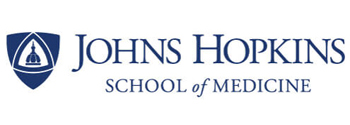The BIOCARD Study was established in 1995. It was originally led by investigators at the National Institutes of Health (NIH) and was transferred to the research team at the Johns Hopkins School of Medicine in 2009. It is supported by funding from the National Institute on Aging and is led by Dr. Marilyn Albert.

The clinical and basic researchers in the BIOCARD study have made major contributions to current knowledge about Alzheimer’s disease (AD) and related disorders. The overarching goal of the study is to improve understanding of the earliest phases of AD, accelerate the development of new treatments that are directed at the basic mechanisms of the disease and hasten the time when effective treatments for AD and related disorders become a reality. To accomplish these goals the BIOCARD research team evaluates participants who are cognitively normal when first enrolled and follows them longitudinally over time. The participants complete annual clinical and cognitive assessments, which are linked with state-of-the art evaluations of biomarkers that are an indirect reflection of AD pathophysiological processes that might be present. These biomarkers are derived from cerebrospinal fluid (CSF), positron emission tomography (PET), magnetic resonance imaging (MRI), and blood specimens. Life style factors and genetics are also examined in detail to determine whether they modify risk for the development of memory loss over time. The cohort currently consists of 477 individuals, with additional enrollment underway.
What We Offer
Resources for Participants: The study team provides feedback to participants following each study visit, including medical reports for some of the study procedures. Updates about findings from the study and the field in general are provided by an annual ‘newsletter’ and videos posted on the website annually. Video presentations from recent ‘Participant Forums’ can be found here. The study team is also pleased to provide general resources about AD and related disorders which can be found here.
Resources for Researchers: The study team shares the valuable resources from this study that have been accumulated since 1995, in order to maximize what can be learned about the earliest phases of AD from this deeply phenotyped cohort. Investigators can request clinical, cognitive, CSF, blood and imaging data, as well as digitized MRI and PET scans. The process for requesting these resources is highly streamlined and can be found here. The procedures for requesting biospecimens is more detailed since most of these (i.e., blood samples, CSF samples, and brain tissue) are non-renewable. The procedures for requesting these biospecimen resources can be found here.

